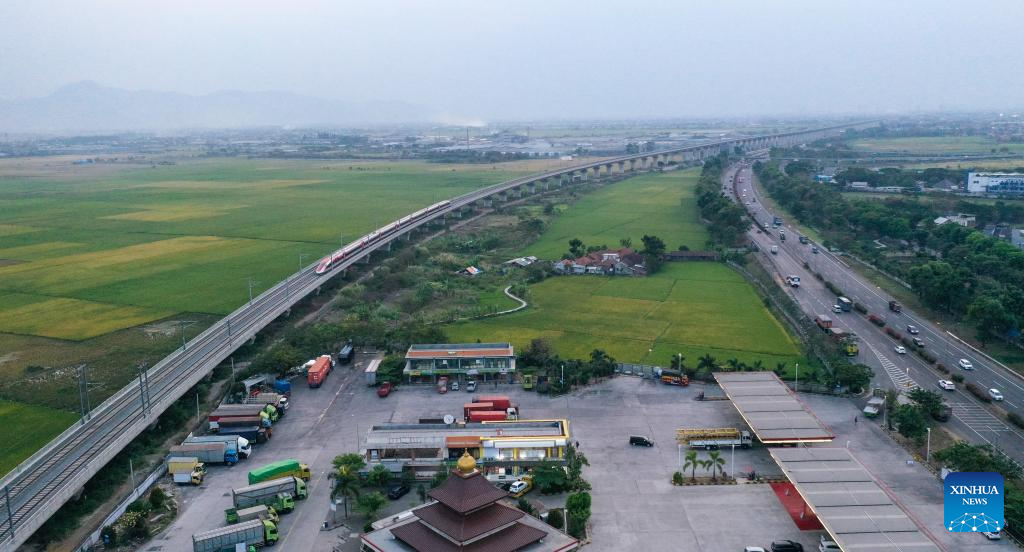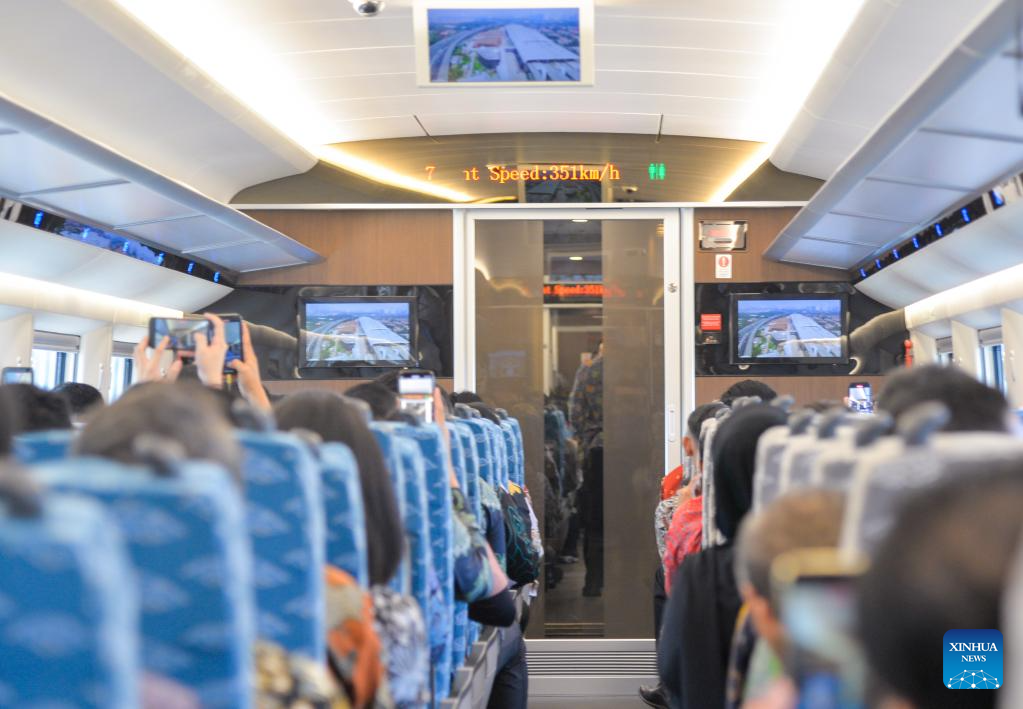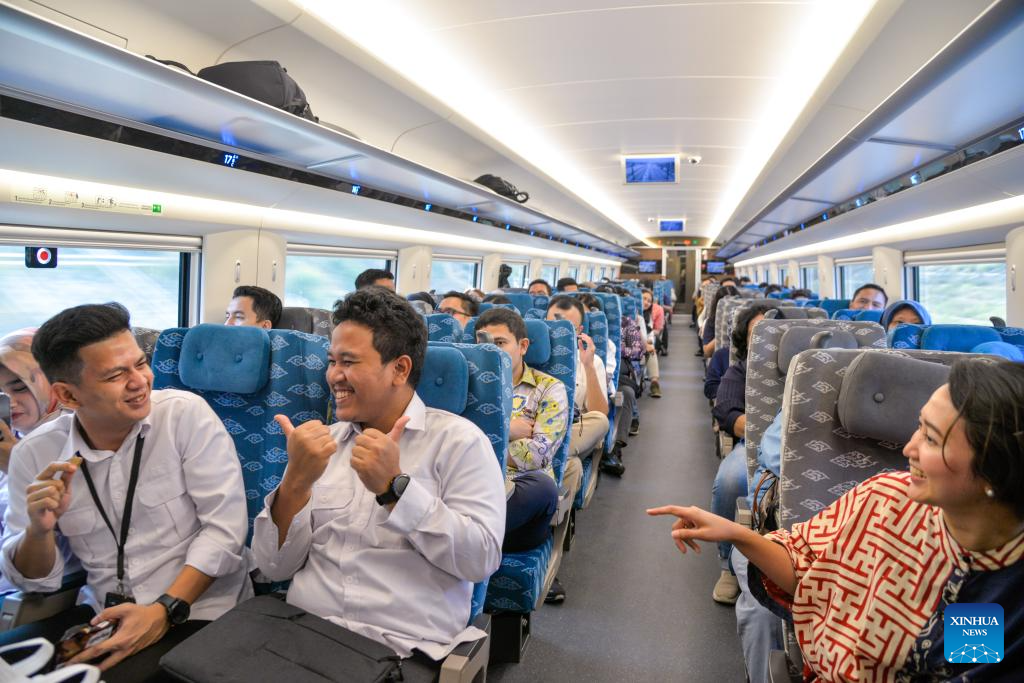
JAKARTA - The Jakarta-Bandung High-Speed Railway marked its six months of operation on Wednesday with a total of 2.56 million passengers transported, said PT Kereta Cepat Indonesia-China, a joint venture consortium between Indonesian and Chinese state-owned firms that constructs and runs the HSR.
According to the KCIC, since its official commercial operation around mid-October last year, the railway has operated a total of 7,050 train trips with a mileage of over 1.26 million kilometers.
The KCIC said that it fully drew on China's rich experience in high-speed trains to carry out operation and maintenance management, properly responding to extreme weather conditions such as heavy rains and typhoons
At present, the railway's daily train trips have been increased from 14 to 52, and the number of passenger seats has surged from 8,400 to more than 31,000. The highest number of passengers sent in a single day was 21,537, while the highest daily seat occupancy rate was recorded at 99.6 percent.
The KCIC said that it fully drew on China's rich experience in high-speed trains to carry out operation and maintenance management, properly responding to extreme weather conditions such as heavy rains and typhoons, in efforts to ensure the smooth operation of the railway and the safety of passengers.
In addition, to better meet the needs of passengers, a dynamic fare policy was introduced, the operation schedule was optimized, and the facilities at train stations were improved, it added.

The high-speed railway, which is the first of its kind in Indonesia and Southeast Asia, hit the mark of transporting 2 million passengers in early March, according to official data.
Septian Hario Seto, deputy minister of Indonesia's Coordinating Ministry for Maritime and Investment Affairs, said the railway has revolutionized travel between Jakarta and Bandung, shifting it from highway-based to rail-based.

"I am confident that in the future, our mobility pattern will evolve from individual transport to a more mass transport-oriented approach," Seto said.
With a design speed of 350 km per hour, the 142.3-km high-speed railway cut the journey between Indonesia's capital Jakarta to Bandung in West Java province from over three hours to around 40 minutes.


